From siloed expertise to strategic enabler
How is the role of tech leadership being reimagined? What does it mean to lead in a world being reshaped by AI, automation, and accelerated change?
At the recent “Hands on, Hands off: Mastering the Human, Tech & AI Skills for Effective Leadership” event, hosted by Corndel and Imperial College Business School, these questions took centre stage. It wasn’t just about technology. It was about the transformation of roles, of cultures, of leadership itself, and why this matters for every organisation.
From the moment Professor Deeph Chana began speaking, it was clear that the traditional model of the Chief Technology Officer (CTO) is out of date. Today’s organisations don’t need technical oracles tucked away in ivory towers. They need adaptable, emotionally intelligent leaders who can unite human and digital capabilities and drive forward with ethical clarity.
Once esoteric, now essential: Rethinking the role of the CTO
As Professor Chana explained, the CTO of the 1990s was a deep specialist and an expert in the engine room, far removed from strategic decision-making. Fast-forward to 2025, and that model no longer works.
In today’s AI-accelerated world, CTOs must be polymaths. They must bridge science, technology, policy, business, and ethics. They must inspire others to act. And critically, they must embed digital fluency and responsible innovation into the heart of their organisations. This is a critical shift, both in skills and mindset.
Drawing on decades of experience across academia, industry and government, including recent work with NATO, he explained how the most effective technology leaders of tomorrow will be those who understand people as well as platforms. Mike Hoffman, Director of Curriculum at Corndel drew back to this point during the panel discussion, stating that “often with technology, you try to control the world, and you’re trying to control people, which never works. What you want to do is influence people and to be able to do that, you need to understand people.”
Professor Chana challenged the outdated notion of the ‘moody genius’ in tech leadership. Instead, he called for a new kind of CTO: one who is as comfortable navigating ethical dilemmas and culture change as they are managing data pipelines. “The CTO has to be a culture setter… allowing people to come to an understanding of technology without making it sound scary, esoteric, and isolated.”
He also spoke powerfully about the risks of overworking through tech-enabled presenteeism, urging leaders to choose tools that support well-being, not just productivity. “Technology is helping them to overwork and drive themselves into the ground… this shouldn’t become normal… The leadership sets out the technology proposition for a company. The same technology can enable high performance, or quietly drive burnout. The difference is leadership.”
His call to action was clear: AI leadership skills involve a blend of technical decisions and human impact.
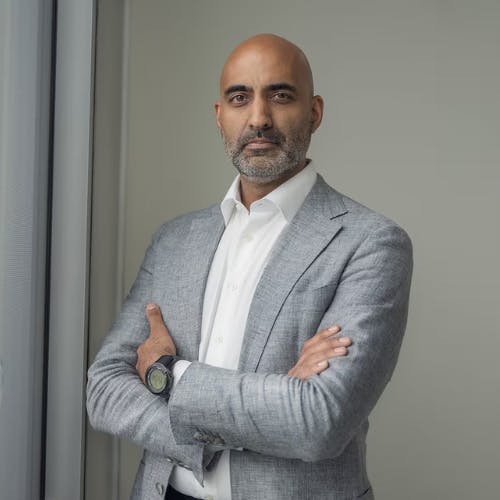
Cross-functional is no longer optional
The event brought together senior professionals from HR, learning, data, and digital, reflecting a broader truth: these challenges can’t be solved in isolation. Lindsey Rowe Head of Strategic Programmes & Sustainability GTM at SAP summed it up: “The technical person used to be ‘allowed’ on leadership calls. Now, we’re realising those boundaries shouldn’t have been there to begin with.”
Jake O’Gorman, Director of Data, Technology and AI Strategy at Corndel, emphasised the rising need for “fusion skills,” those who can connect technical judgment with strategic leadership and inclusive culture-building.
And it’s not just about job titles. Gianluca Barletta, Global Head of Data Science at PA Consulting highlighted the importance of what he called the “Office of the CTO,” a team, not a single unicorn, that integrates expertise across functions, ensuring strategic coherence and execution.
Ethical AI and the next generation
Another key theme was ethics. Not as an abstract ideal, but as a daily practice. As younger, more tech-savvy employees enter the workforce, the ability to apply AI responsibly becomes a business imperative. Mike Hoffman, Corndel’s AI Engineering Curriculum Director, shared the importance of role-modelling ethical behaviours: “CTOs must teach ethics through story, not moralising. If we don’t, others will, and not always responsibly.”
This resonates deeply in a generationally diverse workplace. As Lindsey Rowe noted, today’s early-career talent expect transparency, purpose, and flexibility. They won’t wait years for opportunities or tolerate outdated hierarchies. They also arrive fluent in digital tools, but often unaware of the deeper implications.
“Digital literacy isn’t enough,” said Professor Chana. “We need digital judgement.”
A call to lead across the intersections
The clear message from the day? Technical excellence is not enough. Leadership in the age of AI demands a balance of human insight, business strategy, and ethical foresight. It’s a challenge, but as the day showed, it’s also a powerful opportunity.
By investing in AI leadership skill programmes that develop both human and technical skills, organisations can close critical capability gaps and futureproof their culture. Because in a world shaped by intelligent technologies, it’s not just about staying up to speed. It’s about setting the pace.
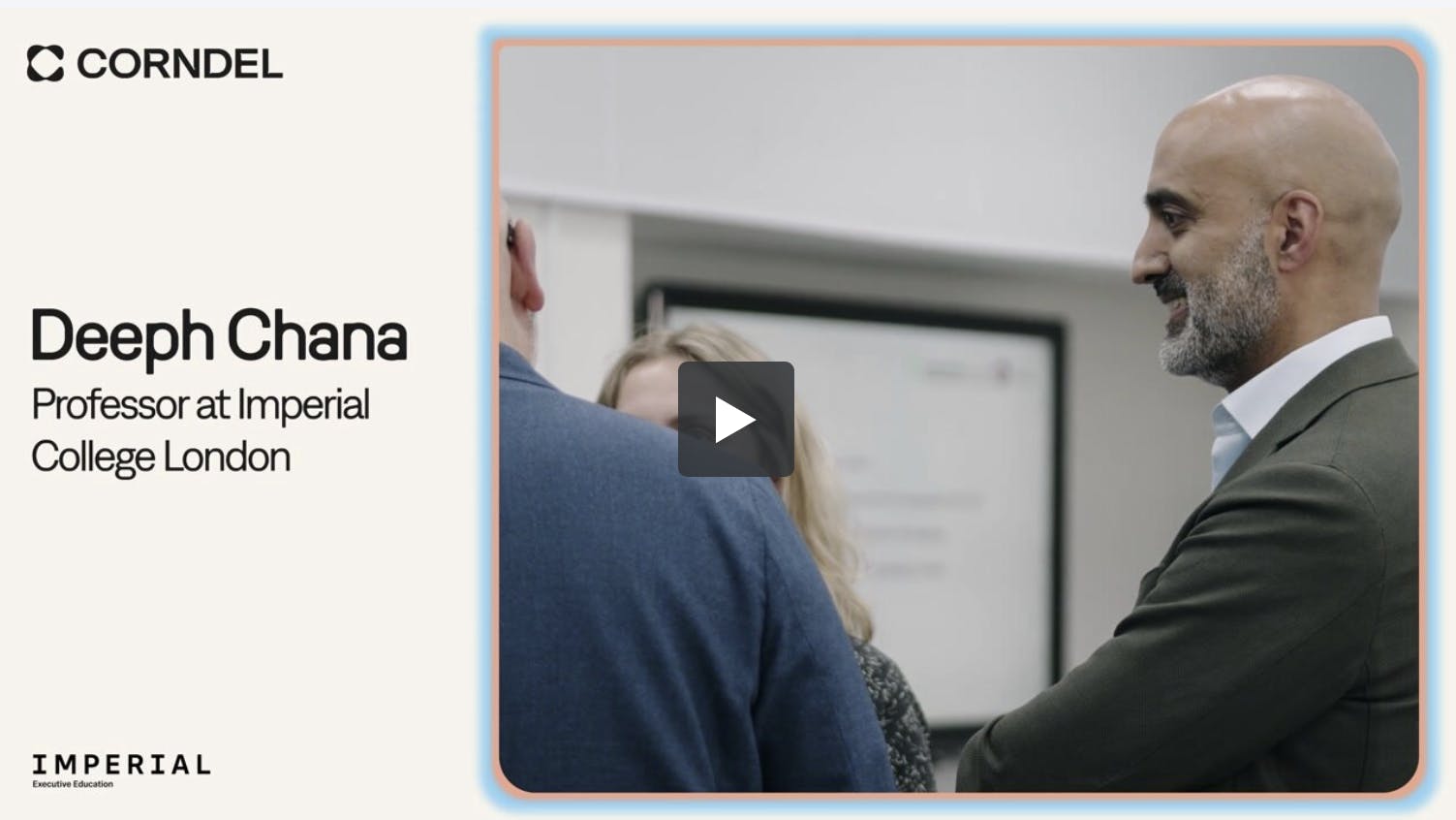
Hear their insights
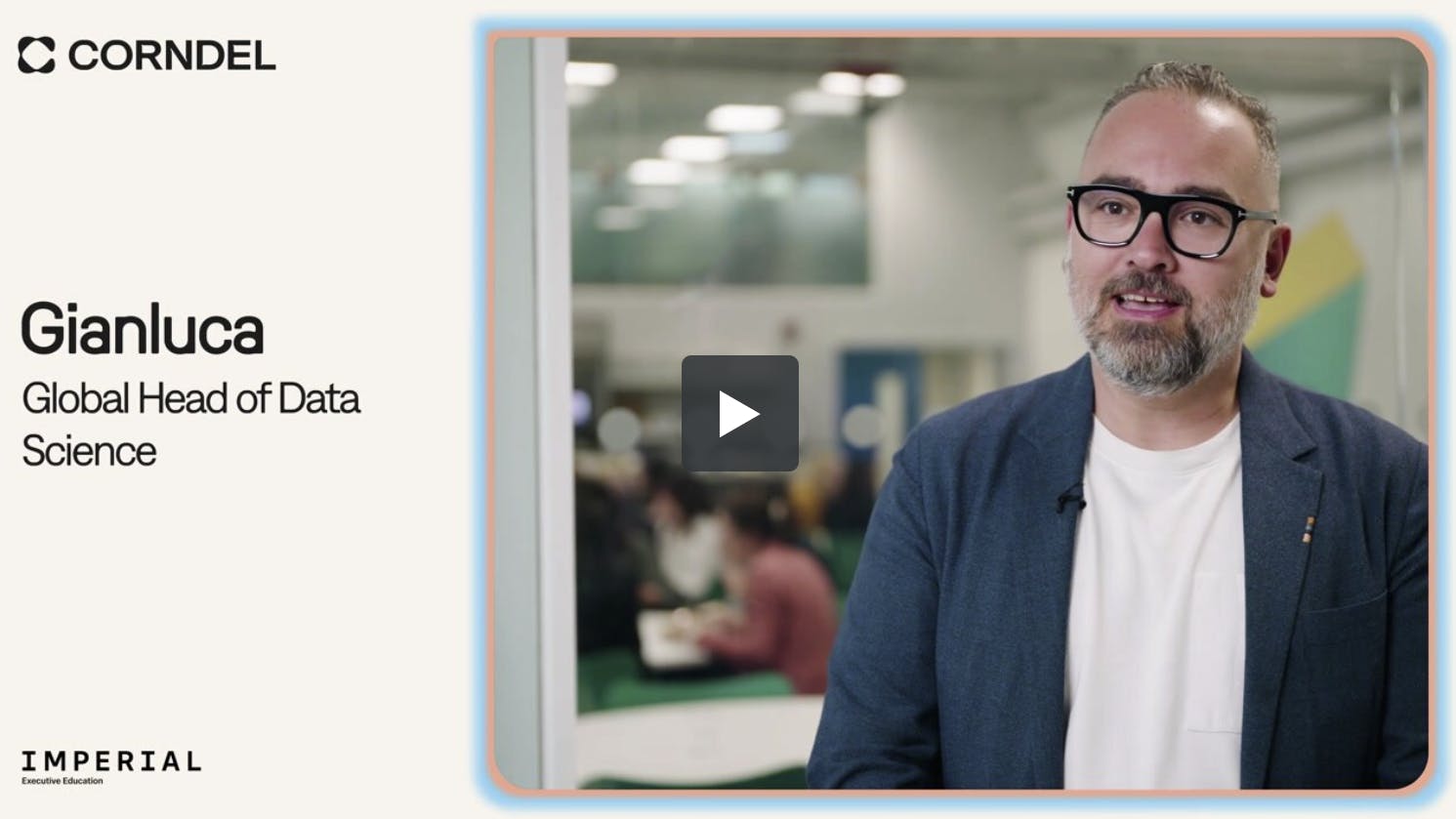
Hear their insights
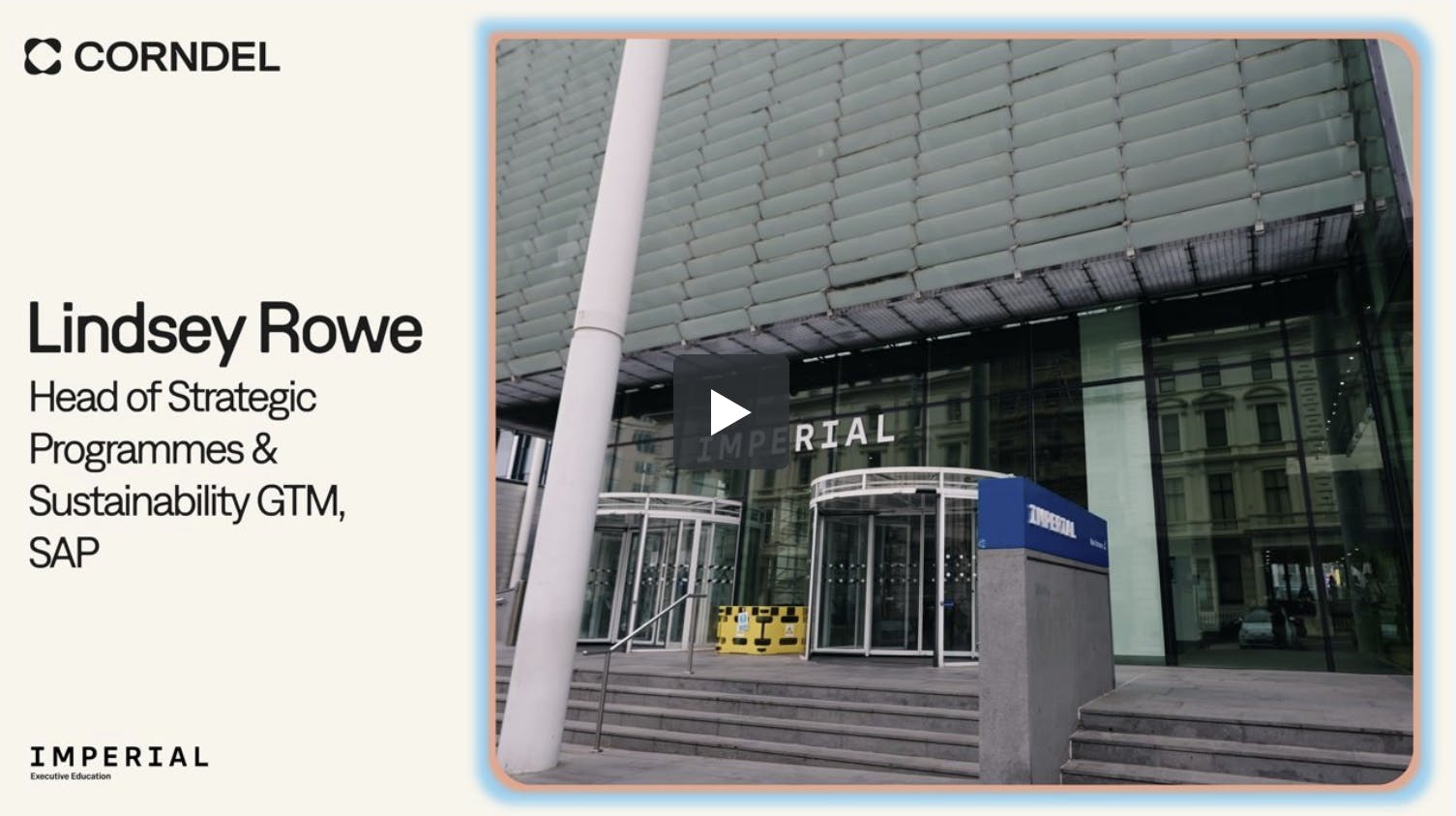
Hear their insights
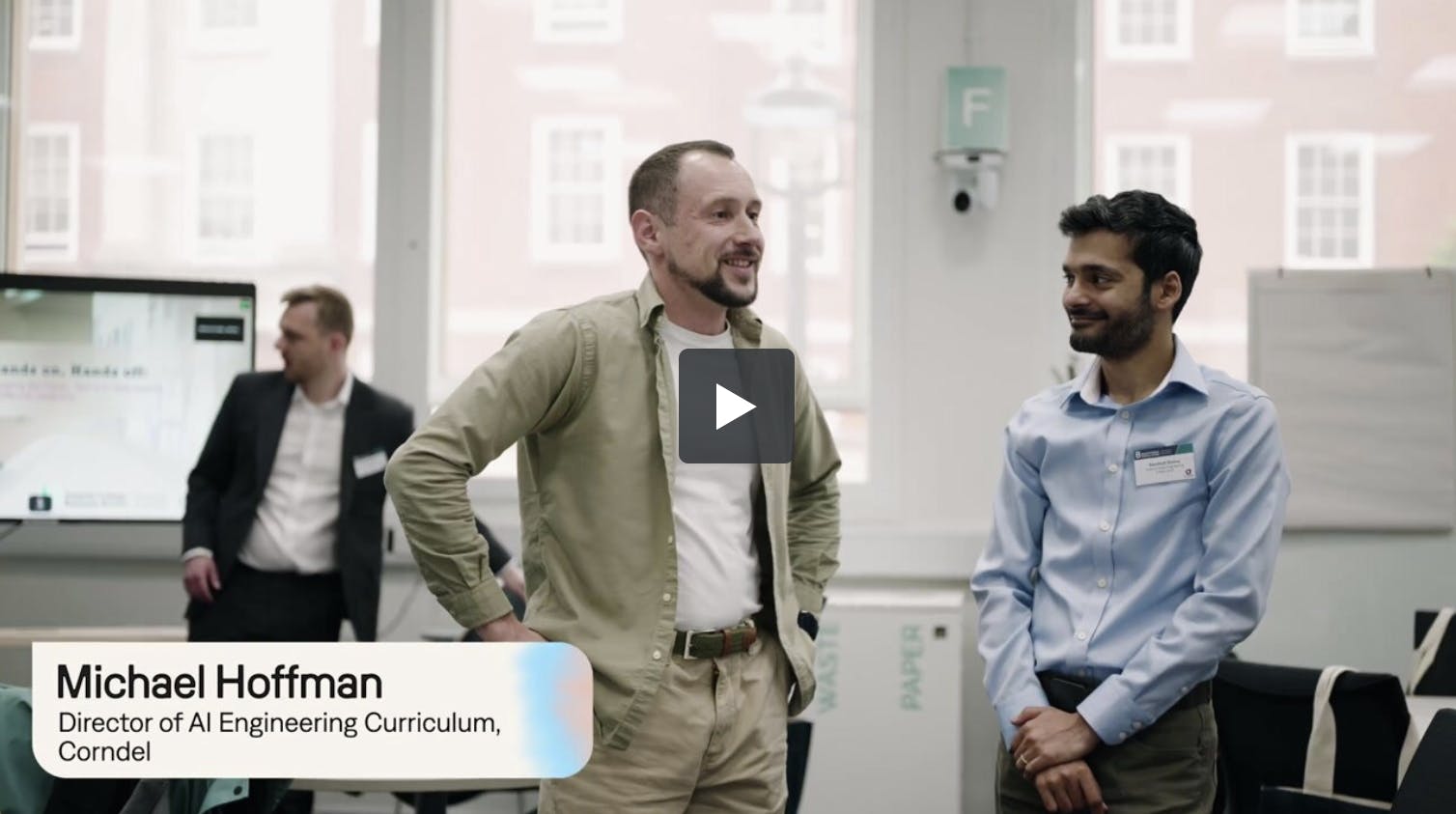
Hear their insights

